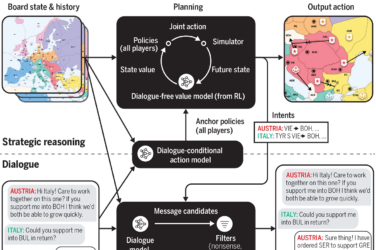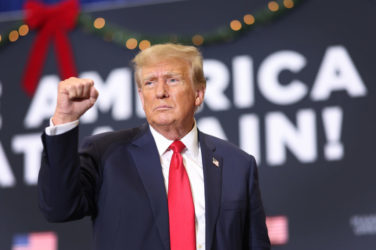The Pandora Papers are the fourth in a line stretching back to Julian Assange (Wikileaks), who was followed by Edward Snowden and on to the Panama Papers. Within this sequence (ASPP) numerous cases, small and not so small, of leaks and whistle blowing, have forced an upheaval in analysis of political affairs, security, and international financial circuits. Prior to the institutionalization of leakage, deception, masking as complacency, allowed democracies to perpetuate the myth that all was quiet on the western front. Despite the devastation caused by the financial crash of 2008 and its aftermath, and the evidence following the bellic exploits of the first Bush/Cheney Administration showing that institutionalized torture was being practiced, nothing seemed to change. But when Assange was hunted in an ordeal which is far from over, the first serious crack appeared in the institutions and behavior hitherto considered as central to the operation of western style democracy. As if a revelation, the notions of rule of law, of the central role of Parliaments, of the existence of effective methods of audit and scrutiny, all suddenly appeared unclear. Foundations started to shake – and that shaking is getting stronger. More than a decade into the age of leakage, we have now entered the era where the challenge is to democratize democracy.
Let’s begin at the beginning. Representative parliamentary democracy is a transactional system. While resting on regular elections to public office (the churn of the urn) coupled with some kind of separation of executive, legislative and judicial powers, the architecture constructed to ensure these things in fact varies very substantially indeed from one democratic country to another. More importantly still, these constructs exist in economic systems where power and influence are essential to profit. Since the law, both in what it forbids and in what it remains silent on, is responsive to these forces, what actually happens is at best a crude approximation to the apparent principles (increasingly and misleadingly labelled “values”) which the edifice purports to represent and defend.
When, around 30 years ago, the Berlin Wall was torn down, Germany reunified, the Soviet Union ceased to exist, the hitherto “satellite” countries of central and eastern Europe escaped the yoke, the European Union was formed, and China’s economic expansion began to gather real pace, all within the first 24 months of the 1990s decade, there were triumphant fanfares to the superiority of democratic systems and social market organization of society. Fukuyama argued that, with these dramatic changes, history had “ended”. What he meant was that, henceforth, there would no longer be debate about what social morphology would be the ideal. Democracy and social market organization had won. Huntington, writing very shortly after, offered a different interpretation, suggesting that there were major cultural fissures across the globe, and that these augured ill for future developments. During the few years that ended the century, nevertheless, the democratically organized societies essentially basked in the sun, though violent civil wars in the former Yugoslavia, in Afghanistan, in Rwanda and elsewhere showed that there were plenty of reasons to be concerned. The bubble of complacency was finally burst on 11 September 2001.
The 20 years since then have produced two strains of “revelation”. One has been the dramatic increase in examinations of how in fact governments in democratic countries have used the security issue to remodel political and geopolitical frameworks, not to mention acceptable behavior in society. The other has been vastly increased transparency relating to international financial operations. Both strains owe much of their power to technological advances, in particular the ability to crack secrecy codes and analyze vast quantities of data. But they are also indebted to greatly increased participation and scrutiny of official and private behavior by two kinds of groups. Citizen action, within and across countries, has coalesced into dedicated efforts to understand and clarify what is really going on. In the middle of the last decade, for example, it was such energy that effectively blocked the TTIP (Transatlantic Trade and Investment Pact). The message to governments, and especially to the EU, was that riding roughshod over things people considered important (environment, food safety, treatment of investments) would not be tolerated. On an ongoing basis, groups ranging from the Consortium of Investigative Journalists, to Corporate Europe Observatory, to LobbyControl in Germany, to Transcrime in Italy, do a superb job in keeping up the pressure for transparency.
The second group is one which has existed for ages, but only more recently has flexed its muscles on the big stage. I refer to perhaps the most significant work of parliaments, namely that done by the Working Committees on all sorts of subjects, often supplemented by Special Committees of Enquiry. A few examples make the point. In 2016, the so-called Chilton Committee in the UK produced a devastating report spelling out the deception and downright incompetence involved in the UK government’s adventures in Iraq. In August of this year, SIGAR, the official audit office created more than a decade back by the US government to oversee what was happening in Afghanistan, produced its monthly document in which it castigated the authorities for totally overlooking Afghan culture throughout the post 2002 occupation. We all know what happened just a few days later. Last week, two committees of the UK parliament working jointly produced a preliminary analysis of government management of COVID in that country. No fewer than 13 major errors and misjudgments were identified, including the almost total waste of 37 billion pounds on a “test and trace” system which had to be abandoned. Yesterday (13 October) Transparency International produced an examination of the notoriously defective system of the European Parliament in which Members are supposed to declare their earnings from activities in addition to their official role. The figures, for what they are worth, show that for many of the Members the official income is but a small part of their total receipts.
In the true spirit of transactional behavior, governments and international institutions have tried to plug holes by focusing on financial penalties for misdemeanors, sometimes supplemented by criminal prosecution. A major effort has been dedicated to tackling corruption and fraudulent behavior, in their myriad forms. That action has been marked by the standard emphasis on altering (and usually increasing) relevant rules and regulations. To be generous to what has been done, we could say that the trend has been to seek to restrict the extent to which professional bodies and institutions are allowed to set their own rules for ethical behavior. In old fashioned terminology, these rules were termed “codes of conduct”. Laudable though the current actions may be, their practical effectiveness is limited. For instance, the major accounting firms regularly pay fines (to the tune, globally, of tens of millions of dollars per month) as penalties for their misdeeds. There is no evidence that behavior has been altered. We are still in the position where, following a serious upheaval in one of these companies following major scandals, the incoming CEO told an official inquiry that all his firm (and the others) could do was offer an opinion. It was not responsible if the information was wrong. Rather a lot of money is being paid by countless entities, private and public, for approved financial statements that may be highly misleading or even downright fraudulent. And that’s without considering the costs to third parties who act on those statements.
So it is that right now, western democracies are engaged (though not necessarily whole heartedly) in the highly complex task of a thorough renovation of the architectures of their systems. It is particularly unfortunate that this rebuilding is going on while those same democracies continue to preach to the rest of the world about the virtues of the systems. Since the information being leaked goes out to the world, the same democracies are left vulnerable to the traditional criticism addressed to those in glass houses. That criticism is not valid and ignores the major personal and social advantages stemming from democracies. What is in fact happening, in my view, is something different. People living in these democracies, and especially those of us born into and brought up in them, understand that the deliberate misuse of institutions, norms and customs which has persisted and indeed increased over time, is now a real cancer. Trust, which ought to be the basis for any beneficial transaction, has been profoundly eroded. The ongoing revelations of foul behavior not only weaken the foundations of the democratic edifice but lead to ingrained skepticism. No wonder fake news catches on, when the reality itself is pretty unpleasant. Have things gone too far to be remedied?
My response is “no”. But a successful assault on the present setup will require very determined efforts, above all from those inside the architecture. In the same way as we pursue those who sell counterfeit goods, so we must trace and penalize those who pervert laws and institutions while claiming they are representing democratic ideals. The EU is preparing, in December of this year, to issue a new directive on the protection of whistle blowers. That is a good step. Yet we need to go further. The target has to be to render them unnecessary, because corporate, official and individual behavior lives up to basic ethical norms. Utopian? Maybe. If we do not move clearly in that direction, however, then we will need even more highly skilled informational plumbers whose job is to create leaks to plug holes, instead of their traditional opposite function.
Peter O’Brien. 14 October 2021





